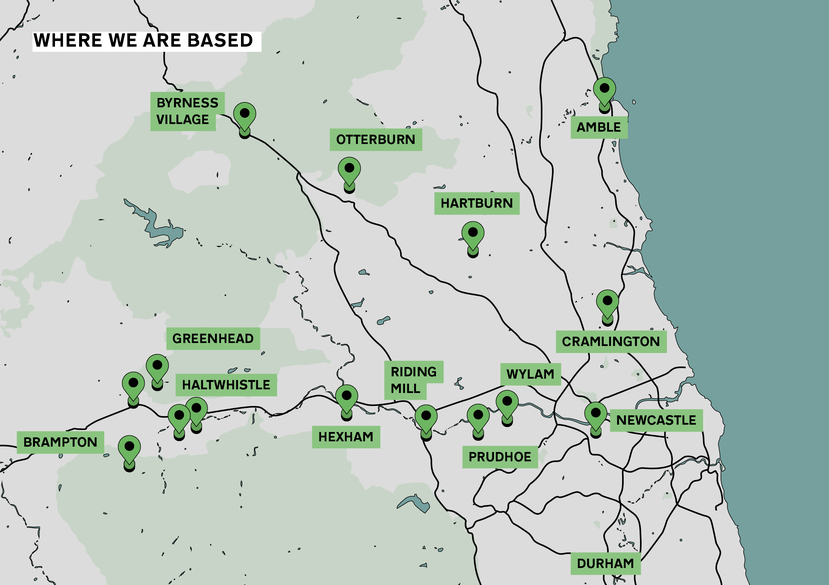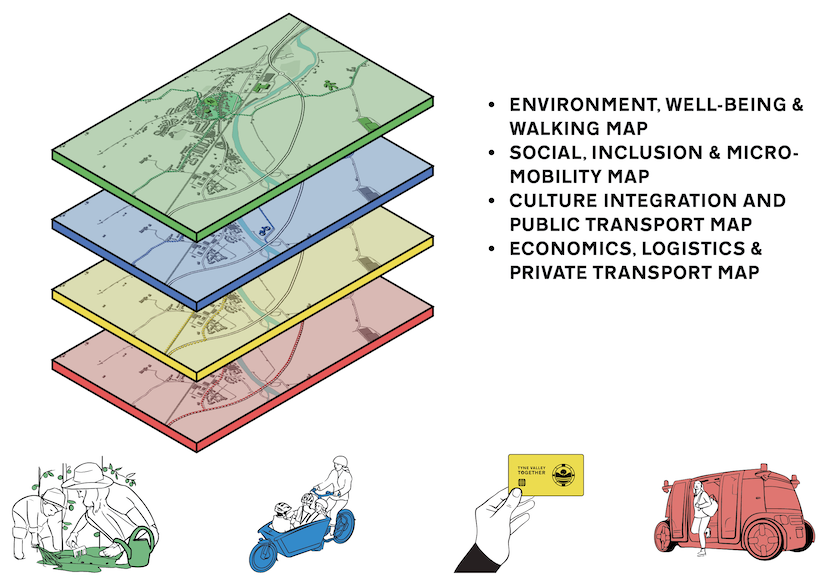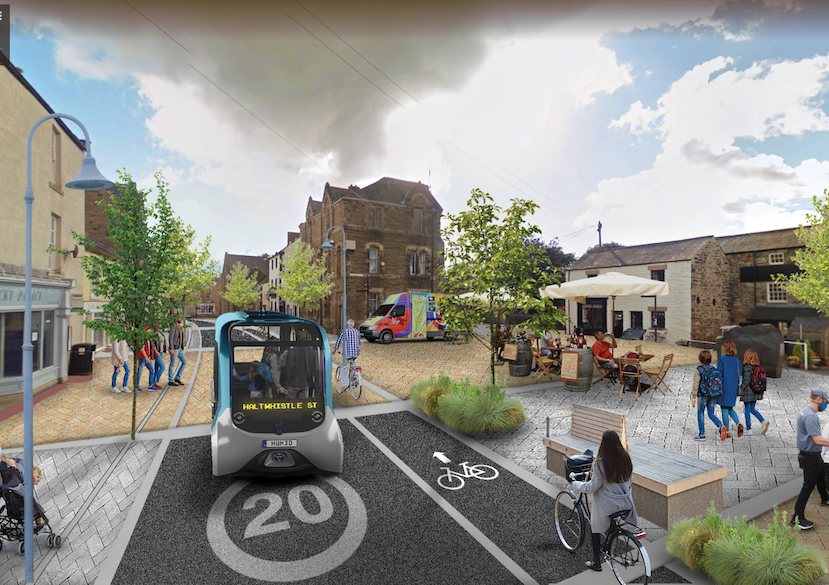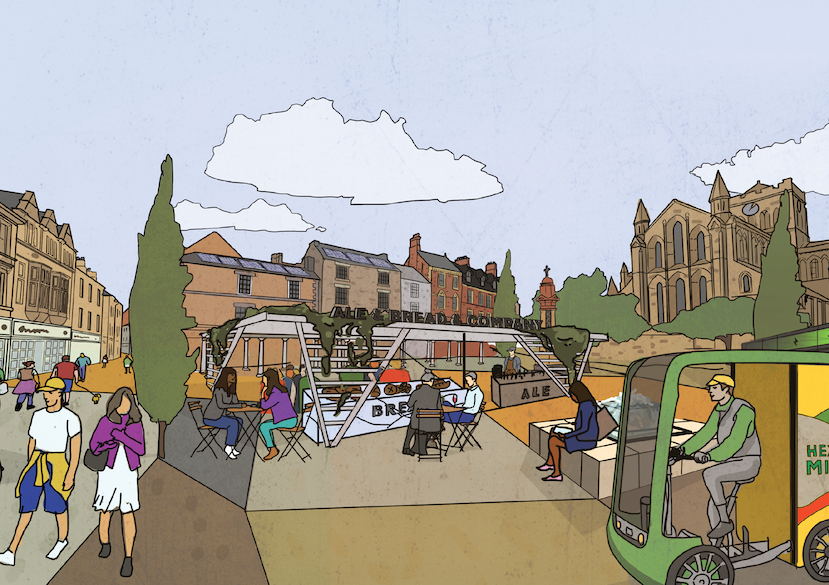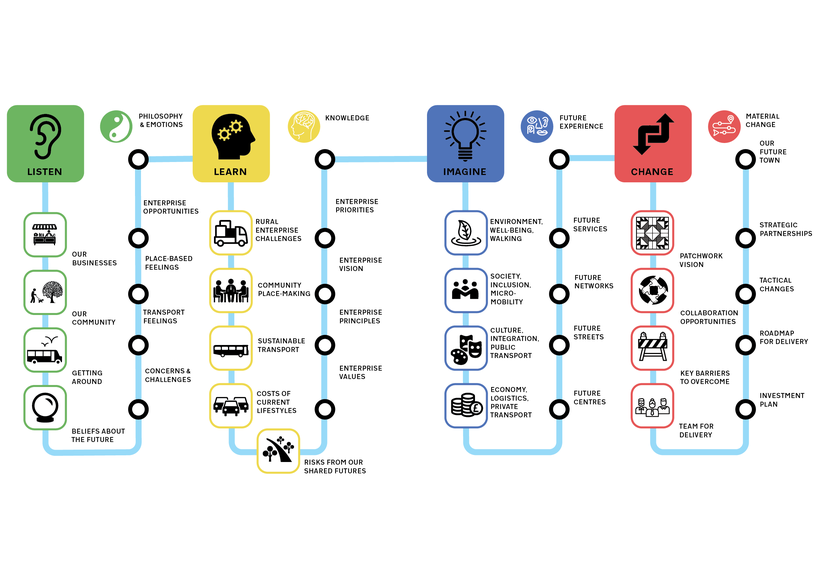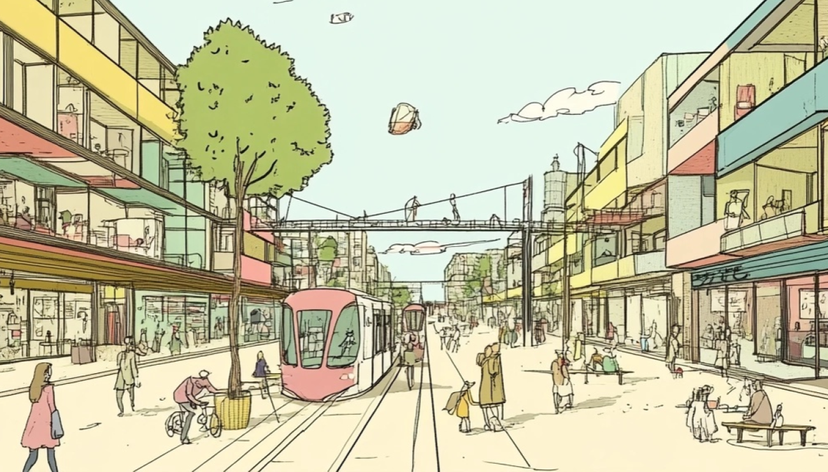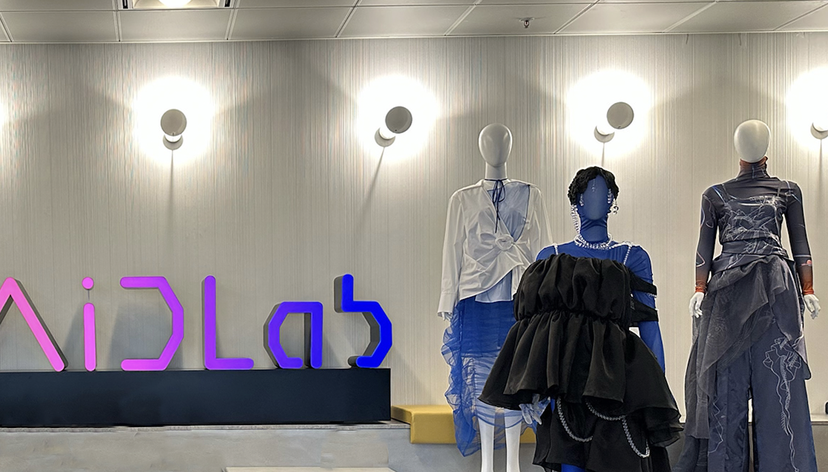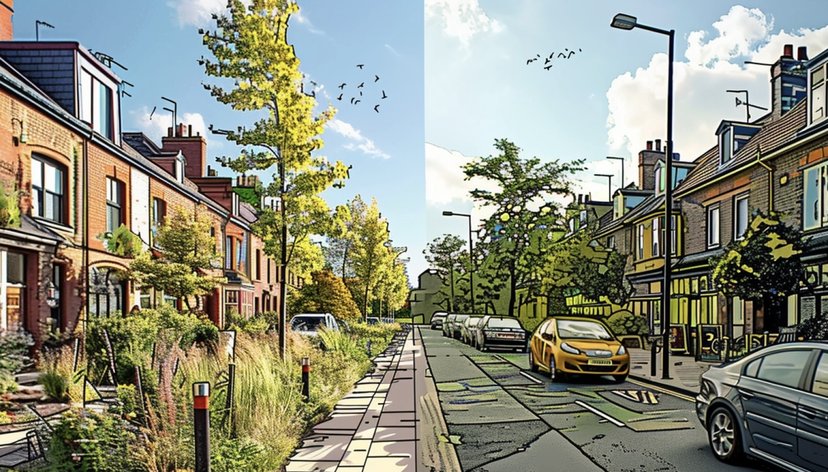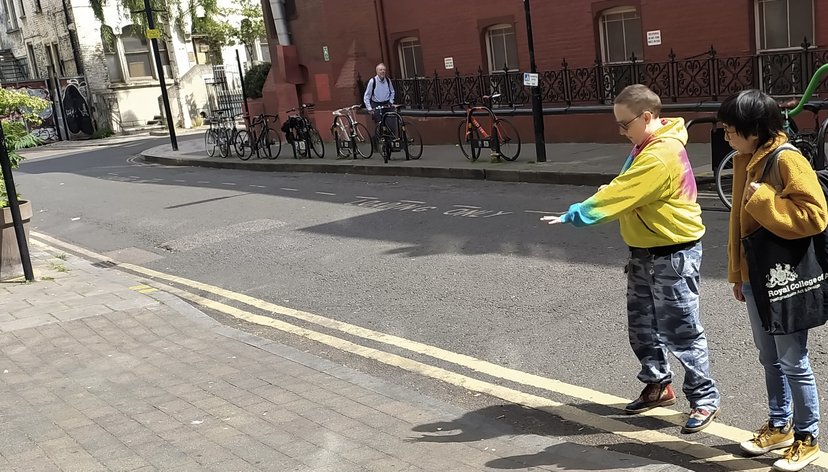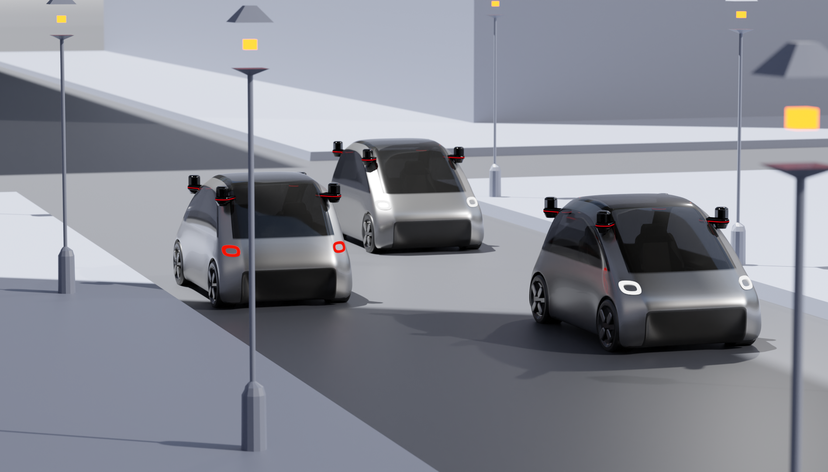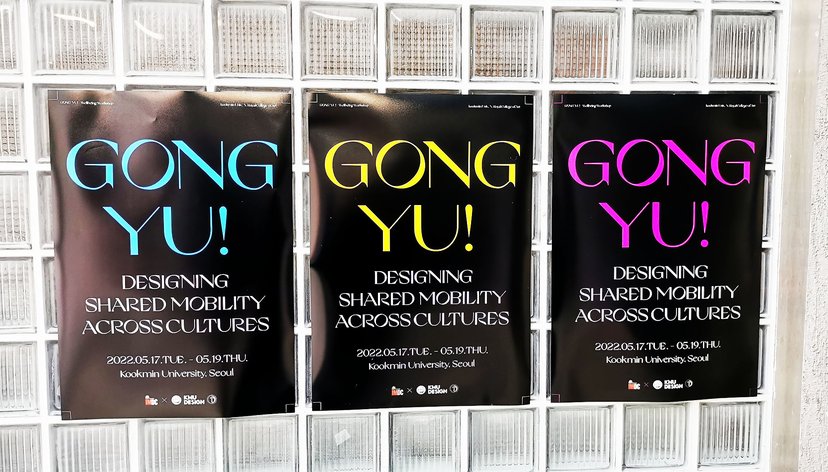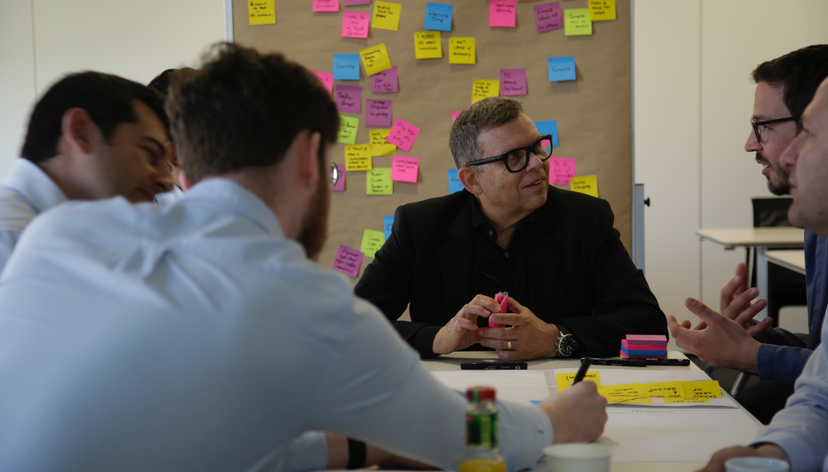
The challenges of our time are indeed global in scale. But the most effective and catalytic solutions can often be found at the local level.

Rural communities are facing challenges from many directions and government is looking to rural entrepreneurs to unlock their potential through innovative businesses and creative entrepreneurial approaches. The engaging enterprises project aimed to work with rural entrepreneurs to understand their feelings towards their towns and the rural transport system and provide insights and tools that might help other entrepreneurs and towns engage with these issues and respond to a range of issues including inclusive wellbeing and environmental restoration.
The project builds on theories of system change and the need to engage with people’s hearts and minds as we develop solutions for our future towns.
At a glance
We worked with NICRE and a range of civil partners to engage with local entrepreneurs in and around the Tyne valley, and included 14 different organisations in online surveys and workshops over the summer and autumn of 2021. They represented both for profit and social enterprises and included innovators and community evangelists, managers, shop owners, volunteers and teachers. They were involved in hospitality and tourism, eco-products and food and had expertise in infrastructure development and partnership building, amongst other skills.
- Participants shared common values including a sense of community, helping others and kindness; and valued hard work, passion and a drive to succeed - founded on a natural friendliness that’s part of a Northumbrian way of life.
- They saw value in their historic market towns and nature as well as the creativity needed to help them to thrive, but they also saw barriers in their communities including the challenge of working with councils and accessing funding as well as a lack of ambition, shared environments to come together and the need for smarter infrastructure.
- They saw positives during the pandemic, from support for those in need to the benefits of digital and also found themselves smiling when they were able to get around by bike or walk by the Tyne. But they were also frustrated by the way shared spaces were abandoned, the lack of support from government and the isolation that many people felt.
- When they thought about the future, they shared environmental, social and economic concerns and had overlapping visions for their future towns.
Their vision was centred on helping smaller and independent businesses and town councils work together to support thriving town centres that are self-sustaining and inclusive, with space and time for everyone. To achieve this they would like to see more community owned services and organisations that provide focal points for work, play and learning, connected to green spaces, public transport, walking and micro-mobility networks that reach within and between their towns. They recognise that private vehicles are an important part of rural communities but they don’t need to dominate their towns or the way we plan for the future.
During our workshops they responded to issues like sustainable place-making and transport by asking that communities come together for one vision and make decisions collectively.
- They want to see more collaboration and less competition especially between different levels of government.
- But they need to see more joined up funding and investment and the ability to build community enterprises that help everyone succeed.
- In terms of transport, they wanted to see integrated public transport but recognised that this needs political will.
- Until this happens cars will remain, individually, more convenient and cheaper too.
“We need to future proof and get people to think where we are going in ten years time (not what’s happening next week or next year). There’s a whole education piece that needs to be done there really.”
- When we discussed the costs of our current lifestyles and the risks from our common futures, they wanted a focus on poorer neighbourhoods and an investment in our town centres, recognising that many of these issues are “things that don’t get counted”.
- When it comes to the climate crisis, they told us that it's always easier to keep doing what we’ve always done, but we have to make our communities accountable for their impact and invest to make change.
“I don’t think you can be serious about responses to climate change without those sorts of practical actions that make it easy for people”
As entrepreneurs they wanted to develop social enterprises that fill gaps and create opportunities that aren’t based on profit all the time, and to nurture young talent in shared spaces where people can try out things and learn about setting up a business.
We developed four different themes, grouping different types of interventions within them to foster imagination and creativity during the workshops.
- Environment, well-being, walking (green)
- Social, inclusion, micro-mobility (blue)
- Cultural, integration, public transport (yellow)
- Economy, logistics, private transport (red)
While maps didn’t necessarily support holistic thinking, the range of themes encouraged a variety of creative responses.
- The environmental theme connected wellbeing centres, walking networks and renewable power.
- The social theme identified the need for inclusion and safety in our towns, through repurposing buildings for young and old to creating safe micromobility paths and hubs to support additional needs.
- The culture theme aimed to celebrate arts and culture in our rural communities but connect it with a joined up public transport system perhaps through a ‘Tyne Valley Together” transport and culture card.
- The economic theme asked that towns focus on their centres, provide logistics hubs to manage the growing delivery challenges in a smarter way and the provision of smaller pocket car parks that support a shift to E-charging and protect town centres from unnecessary traffic.
From our perspective, we need to see more radical change and it will only happen with joined up and creative thinking that engages with entrepreneurs holistically but also with the wider community. We need every market town to create a heart for its community to come together, and every train station to act as a multi-modal interchange that helps people embrace a less car dominated future, and we need to help entrepreneurs and communities come together around shared assets so that communities can grow new connections and businesses that are fit for the twenty first century.
Key details
Gallery
More information
Context
The project is based on prior work, Our Future Towns, that we carried out with transport and planning societies and aims to explore how this model can be extended to include entrepreneurial perspectives.
The challenge
The project aims to contribute to the understanding and improvement of rural enterprises by enabling a deeper and richer evaluation of entrepreneurial attitudes and behaviours around community led place-making and transport planning in the context of inclusive well-being and environmental restoration.
This understanding has been used to develop new ways of engaging with rural entrepreneurs so that they might place a greater value on the social, environmental and economic costs of their current working practises and increase their desire to formulate entrepreneurial responses that help to strengthen and speed up the transition to more community oriented and climate restorative approaches to business development.
Our approach
We worked with our partners to identify and reach out to a cross section of small, medium and larger rural enterprise owners in the Tyne valley and, through an open call, identified 14 entrepreneurs and community leaders, representing for profit and social enterprises.
We asked participants to share more about themselves, their businesses, attitudes towards the places they live and how they get around as well as their beliefs about the future and their experiences during the on-going Covid-19 pandemic, and through listening and supporting conversations found that entrepreneurs had overlapping interests and attitudes even though they came from a variety of business backgrounds and places around Northumberland.
We used the first set of online workshops to understand how people’s feelings were reinforced or modified in discussion with us and other entrepreneurs and as an opportunity to go deeper into the things that people thought and felt. We learnt more about their feelings towards sustainable place-making and transport as well as the cost of our current lifestyles and risks from the future and asked participants to consider opportunities and challenges around their towns and refine values and principles for their future development.
In our second set of workshops, we asked participants to imagine their future towns. We started by reflecting on the concerns, values and vision that had been developed in earlier activities, asked participants to consider a range of interconnected themes together with things they could change in their towns, prepared a street view for a key street within three of the towns where they worked and discussed opportunities for making changes across their wider townscape and region. We also asked participants to consider how they might help make change happen in their communities and used a framework of twelve change ideas to inform the discussion.
We then reflected on the conversations and used the remaining part of the project to develop visualisations of a few of the place-based and transport opportunities that people had discussed. We finally developed a tools and methods diagram that summarises the activities and outcomes that might help other rural communities and entrepreneurs work collaboratively to develop a vision for the future of their towns.
Outputs
Project Research Publication
Intelligent Mobility Design Centre
Get in touch to find out more about our research projects.
[email protected]

